Giving Care to Our Ill Relatives
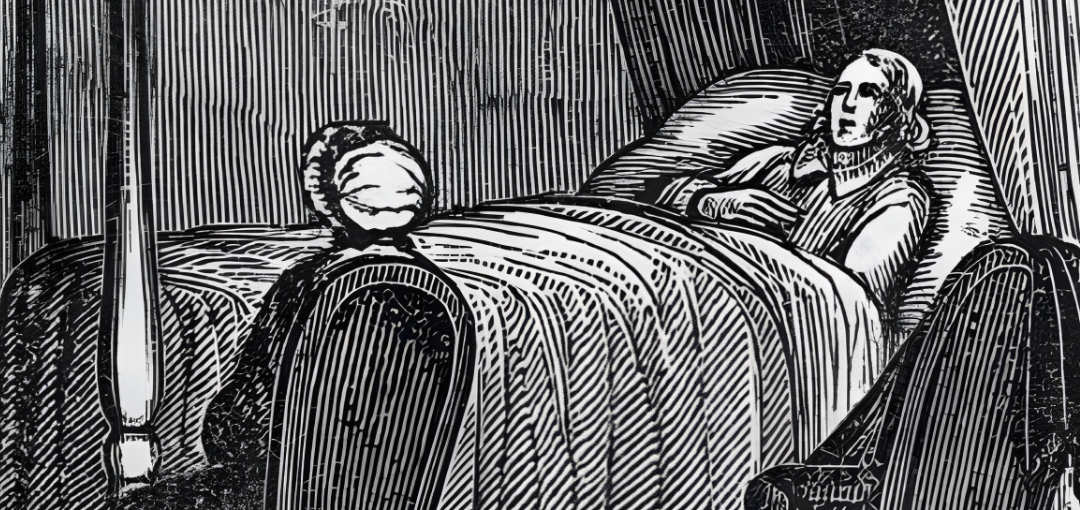
As you know, I am now on hospice care due to the advancement of prostate cancer. I was still hoping to buy more time; but two weeks ago, after my wife Linda, my oncologist, and I looked at my latest lab results, we realized that the medication I am using was not stopping the cancer growth. We then made the decision to have hospice take over.
I have been involved with hospice in the past. However, each case is different. When the hospice “take in” team visited with Linda and me at our home, we arranged weekly visits, reviewed pain medications, and scheduled our house to be set up with a room for visitors, a first-floor bed with a television and, well, all the things to make my life comfortable as I await the inevitable. These items have been completed and my regular nurse—my wife Linda—takes care of my daily needs, while the hospice nurse checks in at my request. So far, so good and I have been reflecting on experiences I’ve had in the past with this wonderful organization.
Hospice is a very old organization, actually beginning more than 1,000 years ago when the Knights of Malta set up systems to take care of their ill and wounded soldiers. However, it was not fully organized in the United States until 1974. In that year, a Connecticut nurse named Florence Wald gathered together other nurses and doctors to give care to patients in the home, when they were in the last stages of needed care.
I first learned of hospice when my father’s brother, Lee Hagenbuch (b. 1926), was fighting cancer. He was at home and unconscious the last that I saw him, only a few hours before he passed. His wife, my Aunt Lera, explained what hospice did, and when my uncle finally passed, hospice came in and took care of all arrangements, so that the family could grieve without needing to work through the system of funeral directors. Just three years ago, I had the opportunity to work with hospice again as I was medical Power of Attorney for an elderly lady friend. I arrived at Frances’ bedside, just as she was dying. The hospice nurse was already present, having been called a reasonably short time before so she could attend to Frances’ needs associated with her death. This permitted me time to grieve and to find out what I needed to do to have her death arrangements completed with dignity.
Before Nurse Wald began the Connecticut Hospice organization in 1974, relatives had to be more involved in a death system that was not well organized, but no less strong. Loved ones—spouses, children, cousins, and siblings—worked with the patient’s local doctors to give their death meaning and dignity. A story I told in a previous article was about how my great grandfather, Samuel Sechler (b. 1928), moved between relatives’ homes every few weeks so that he would get needed care. Although Samuel was not substantially ill, he did need daily assistance, and his daughter, Hannah (Sechler) Hagenbuch (b. 1889) who is my grandmother, was one his caregivers.
I also remember my great aunt, Minnie (Keefer) Hagenbuch (b. 1886), receiving care from her children— Julia, Bruice, Andrew—before she passed away in 1972. I was working on their farm that summer which was owned by Bruice and his siblings. At noontime, when I would go to the house to enjoy Julia’s cooking, I would be asked to go to the front room and say a few words to my great aunt. She wouldn’t recognize me, but we would have a few words together in order to comfort her.
At one time, caring for elderly parents and sick relatives at home was the norm for grown children or other relations. Even then, the hospitals did not see a need to have bed space for terminally ill patients. Another alternative was a nursing home, a system that is still used today by many relatives if they cannot be with their loved ones at all times or if there is a financial burden. Although these systems take care of many needs and care facilities do their best, it is not the best situation, resulting in mental and emotional hardship for relatives as they struggle with decision making. Hospice removes much of this burden, enabling folks to be with their relatives up to the end and allowing the patient to be comfortable in their own homes as they slip away to a heavenly home.
It’s almost impossible to research which of our ancestors may have had a comfortable end to their lives at home under the care of their relatives. To me and many others, this precursor to modern hospice has to be the best solution. Andrew ran across a hint that two of our ancestors had home care, as there really was nothing else back then. In 1783 when he was 68 years old, Andreas Hagenbuch (b. 1715) transferred his real estate and possessions to his sons, Michael (b. 1746) and Christian (b. 1747). He died two years later in 1785. Was he feeling sick or feeble near the end and could no longer maintain the Hagenbuch Homestead?
Then William Hagenbuch (b. 1807), who is my great great grandfather, was ill and at home before he died in 1879. According to a piece in the Northumberland County Democrat, he was “a confirmed invalid for some time” when a lawyer was called to write his will. In an interesting twist, the lawyer, John Miller (b. 1802) of Milton, appears to have had a stroke while recording the will and later died at his home.
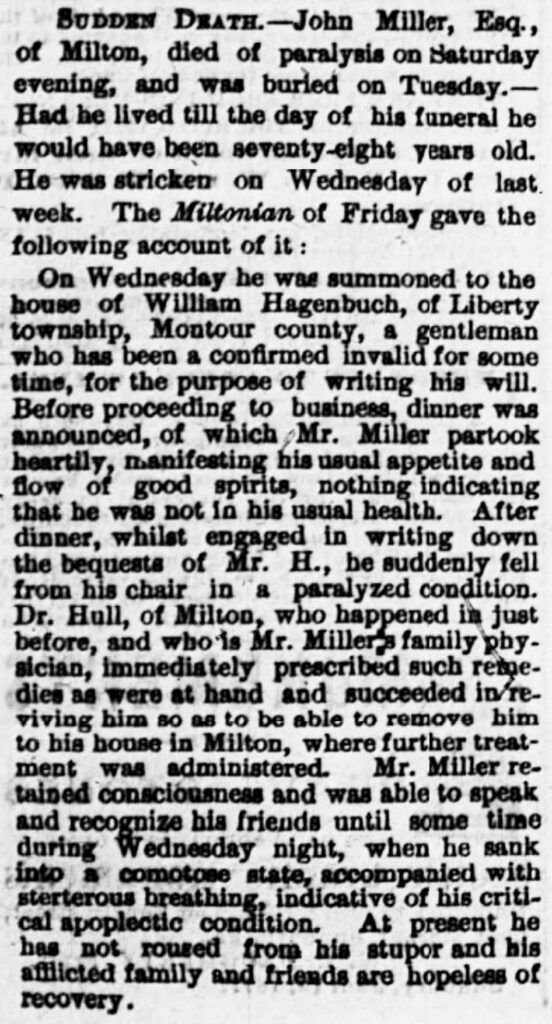
Newspaper article describing William Hagenbuch being ill from the Northumberland County Democrat, March 28, 1879
Thanks to the founding of hospice, there is now a system that unburdens relatives from having to stay with a terminally ill person 24/7. Furthermore, once the patient is at an end, the family is able to more freely grieve and make funeral arrangements.
Personally, I have been helped immensely by my relatives and doctors to make decisions, while hospice has now been enlisted to help with specific daily needs like providing me a lift chair, hospital bed, hygienic supplies, pain medications, and other items to make my last days more comfortable. Hospice is an organization that enhances the essential care and unequaled love given by family, friends, and others.

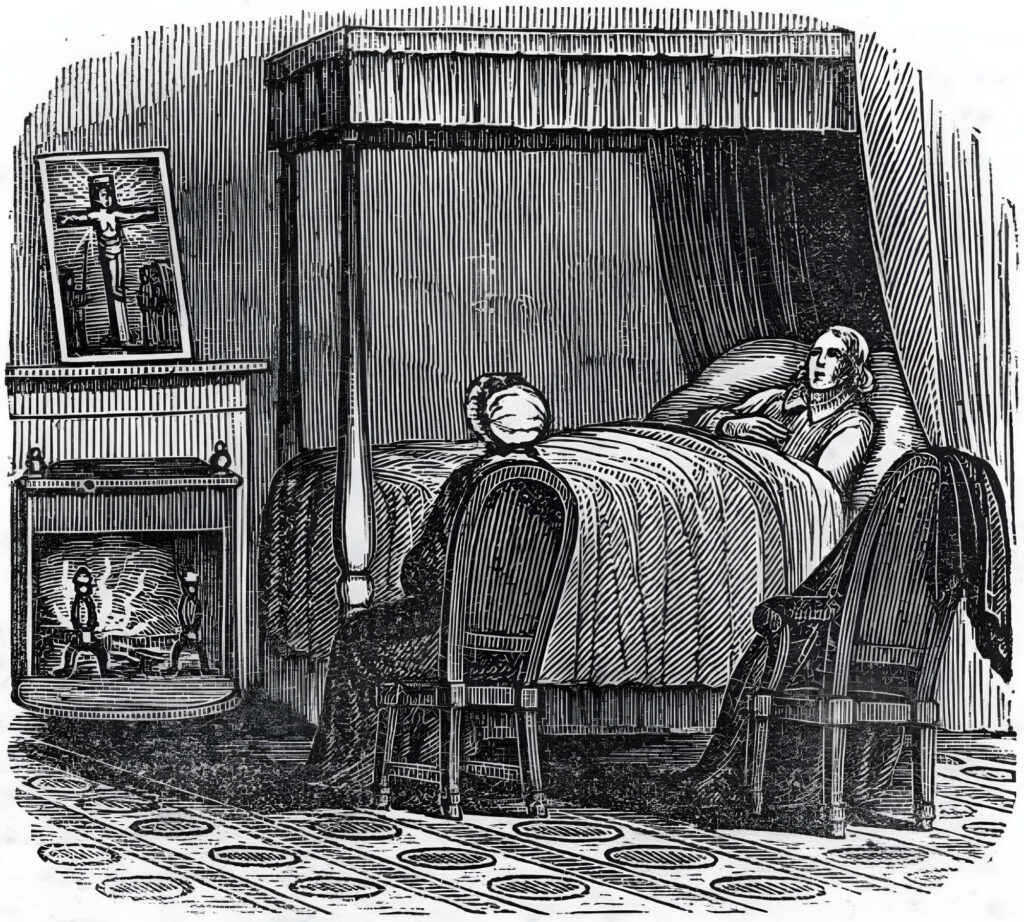
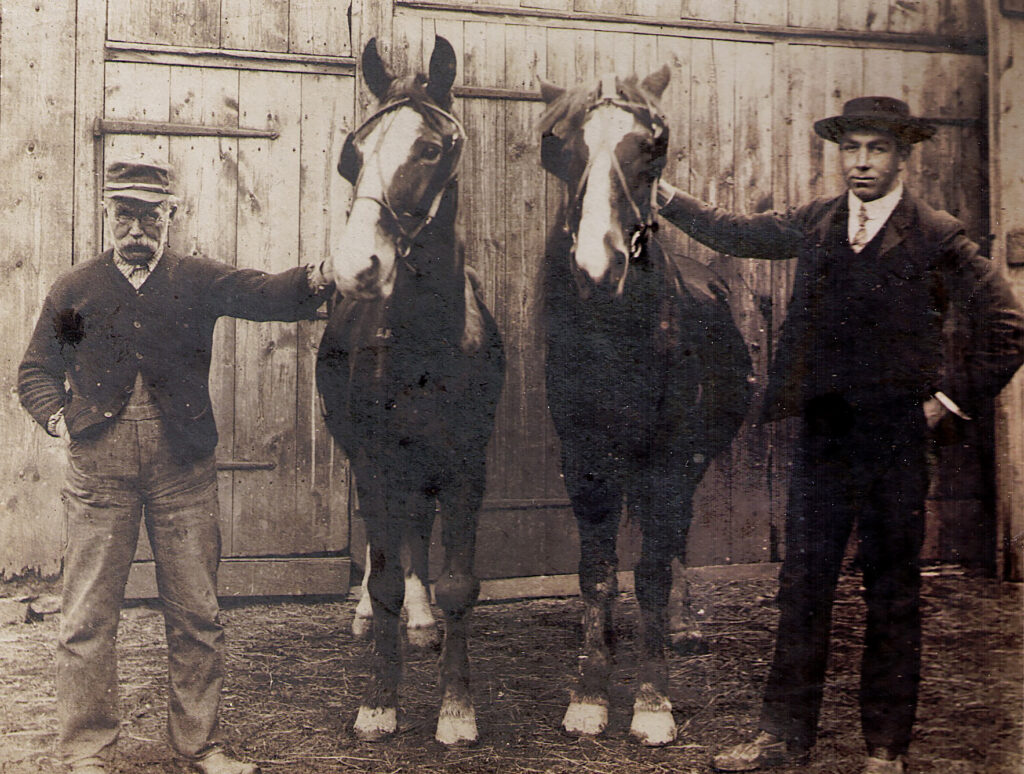
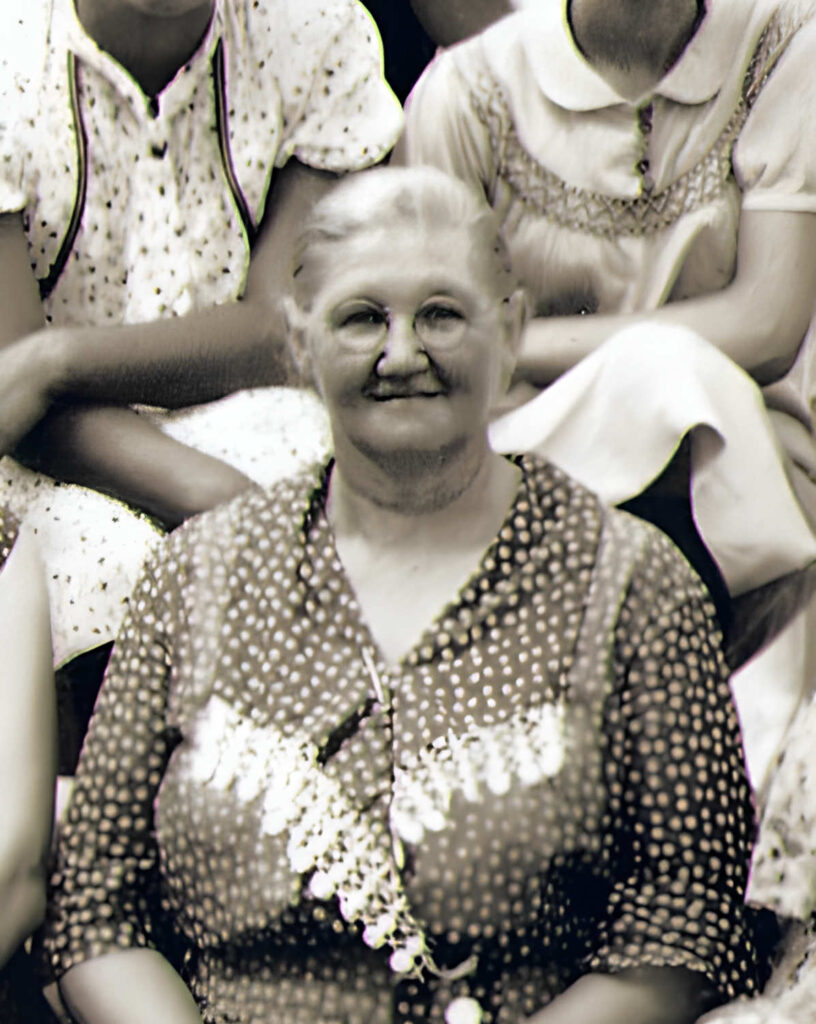
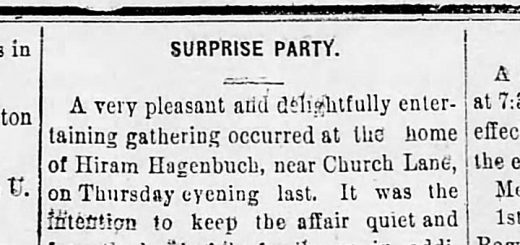
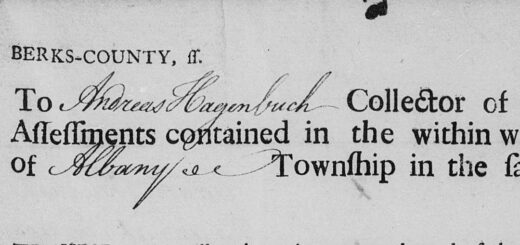
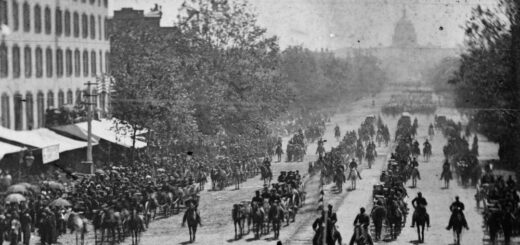














My thoughts and prayers are with you and your family I quit work to take care of mom till she passed went back to work a few years then quit again to take care of dad that old soul lived to be 100
Mark, You have fought a good fight, and lived a good life. I, too, have prostate cancer, and when my time comes, I hope to exhibit the same grace and courage as you do. May God bless you and be with you forever.
Your cousin,
Bob Carl
Dear Mark,
Thank you for sharing your thoughts as well as information about Hospice! You give such a forthright understanding of the whole situation (personal and stories of other’s experiences). Surely uplifts and gives hope to one’s going through similar trials. I thank God for giving you the ability to do this! Harold was only with Hospice while he was at Thornwald Home over a weekend. Nevertheless Hospice was right there for him and us(family). And in fact one of my friends generously placed a light on HCP Tree of Light, Memorial Program which I will attending Dec. 4th at UPMC (with her).
God’s strength, hope, and love be yours and your loved ones!
Jean Kretzing
Dear Mark,
Thank you for sharing so many stories about our family and teaching us so much about our intrepid ancestors. Wishing you easy days ahead. Your life has been a blessing to many!
Dorothy Carl ( descendant of Jennie Hagenbuch)